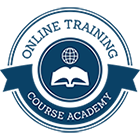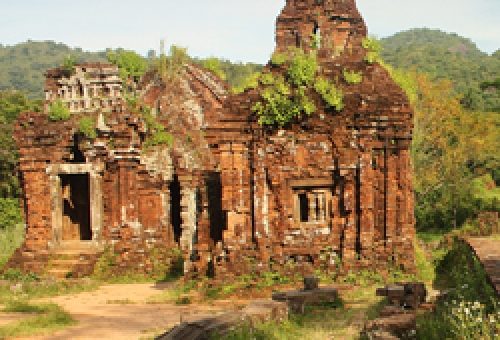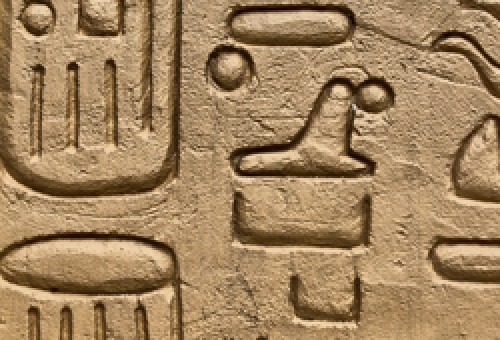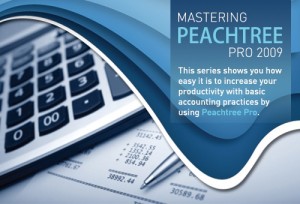The A-level course in Classical Civilisation aims to enhance the analytical and evaluative skills of the students. The course is based upon the specifications provided by the OCR. At both AS and A2 levels, the online course also aims to impart the requisite understanding and knowledge about classical world with the aid of direct study from the original sources.
Product Description
The A-level course in Classical Civilisation aims to enhance the analytical and evaluative skills of the students. The course is based upon the specifications provided by the OCR. At both AS and A2 levels, the online course also aims to impart the requisite understanding and knowledge about classical world with the aid of direct study from the original sources. Besides this, the courseware offers chances to formulate personal responses and agenda towards the set texts chosen for study by the students. By offering detailed study of the matter, the online course reveals the links between shaping and evolving the modern world from the classical world.
Entry Requirements
Basic English reading and writing skills, as full tutor support is given.
Whats Included
Learning documentation, Online Resources and Tutor support for 2 years.
Course Study Format
Course will be delivered online.
Courseware Support
The biggest advantage of studying via Online Training Course Academy is that using your unique student account, you can immediately access the course materials online and submit all the question papers to the tutor online. On submission of question papers, you will immediately, receives the email containing the results and feedback.
Study Hours
Study hour is dependent upon the dedication and grasp towards the learning concepts mentioned in the course material. Furthermore, at the end of each lesson there is a question paper that needs to be completed and returned to the tutor.
Learning Hours
Approximately 300 hours.
Assessment Method
The Examination:
The course is examined in below components:
AS Units 1 and 2
Each unit is worth 50% of the total marks available for the AS GCE, and 25% for the A2 GCE if taken. The papers are each 90 minutes long and each carry 100 marks.
Unit 1: Homers Odyssey and Society
Section A: commentary question (45 marks). Candidates answer one question from a choice of two, each question having three sub sections.
Section B: essay question (55 marks). Candidates answer one question from a choice of three. Bullet point guidance is given for each of the essay questions.
Unit 2: Greek Tragedy in its context
Section A: commentary question (45 marks). Candidates answer one question from a choice of two, each question having three sub sections.
Section B: essay question (55 marks). Candidates answer one question from a choice of three. Bullet point guidance is given for each of the essay questions.
A2 Units 3 and 4
Each unit is worth 25% of the total marks available for the A2 GCE. The papers are each 2 hours and each carry 100 marks.
Unit 3: Art and Architecture in the Greek world
Section A: commentary question (50 marks). Candidates answer one question from a choice of two, each question having two sub sections.
Section B: essay question (50 marks). Candidates answer one question from a choice of two. This unit is synoptic.
Unit 4: Virgil and the world of the hero
Section A: commentary question (50 marks). Candidates answer one question from a choice of two, each question having two sub sections.
Section B: essay question (50 marks). Candidates answer one question from a choice of two. This unit is synoptic.
Exams would need to be carried out at an approved examination centre. Please contact us for assistance.
Exams
Exam vouchers supplied with e-Careers courses must be used within the duration of your course. Exam Vouchers become invalid once the course has expired.
AS Level
Unit 1: Homers Odyssey and Society (F382)
Homers epic poem the Odyssey and the values and societies it represents. The principal focus of the unit is on literature, with secondary focus on history and archaeology. The examination questions will be set on Odyssey Books 4-12 and 18-22.
The social and cultural context: The themes to be studied and on which candidates shall be examined are: the role of the gods and the power of fate; the stories of the heroes; the concept of heroism including tim and kleos; morality including justice and revenge; life and society as portrayed by Homer; the role of women; hospitality and xenia; the role of slaves and the historical and archaeological background.
The literary context: Furthermore, candidates are expected to demonstrate their knowledge of: the oral tradition; textual transmission of the texts; the preliterate form of the texts and theories of the composition of the text; structure of the text and literary techniques; the language of epic; characterisation; supernatural elements; realism and fantasy; disguise and recognition and nostos.
Unit 2: Greek Tragedy in its Context (F384)
The tragic plays of Aeschylus, Sophocles and Euripides as literary works and as social documents for the societies and values they represent. The principal focus of this unit is on literature, society and values, with a secondary focus on philosophy, religion and history. From June 2009-2011 inclusive, the examination questions will be set on: Aeschylus Agamemnon; Sophocles Oedipus the King and Euripides Medea and Bacchae.
The social and cultural context: Candidates will be expected to demonstrate their knowledge and show understanding of the following in fifth century Athens: dramatic festivals; the role of the gods and fate; oracles, omens and prophecies; morality including justice and revenge; death and burial; the stories of the heroes and the ideas of honour and reputation; the role of men in the life of the city; the position of women in society and the importance of children and the family.
The literary context: Furthermore, candidates are expected to demonstrate their knowledge of: the theatre building and machinery; the use of actors; the use of the chorus; other dramatic conventions; attitude towards the portrayal of death and violence; characterisation; use of language and dramatic irony; the nature of tragedy including hamartia, katharsis and peripeteia and the particular styles and approaches characteristic of the three tragedians and their contribution to the development of the genre of Greek tragedy.
A2 Level
Unit 3: Art and Architecture in the Greek world (F388)
The sculpture, architecture and vase painting of the classical Greek world with a principal focus on art, architecture and religion. The secondary focus is on society and values. Candidates must be familiar with a range of free-standing sculpture, temple architecture, vase paintings and architectural sculpture.
Prescribed material: For further details of the prescribed artefacts of visual culture see the OCR specification p.54 onwards for details of this unit.
http://www.ocr.org.uk/Data/publications/key_documents/AS_ALevel_GCE_Classics_Specification.pdf
The artistic and cultural context: Candidates will be expected to show knowledge and understanding of: stylistic features and development of vases, architecture and sculpture; the evolution of different types of buildings; physical characteristics; architectural elements and the Doric and Ionic orders; composition; techniques; function of art and architecture and themes.
Unit 4: Virgil and the World of the Hero (F390)
Virgils epic poem the Aeneid and the values and societies it represents, with a principal focus on literature, society and values, and a secondary focus on religion, politics and history. The similarities and differences between Virgils portrayal of the hero and that found in selected parts of Homers Iliad.
The political, social, historical and cultural context: Candidates are expected to show their knowledge and understanding of: Virgils relationship to the regime of Augustus and the political and historical background in which the Aeneid was written.
The literary context: Furthermore, candidates are expected to show knowledge and understanding of: the composition of both epics; the plot; narrative and descriptive techniques; characterisation and themes including heroism, honour and reputation, family, women, the role of the gods, the power of fate, the portrayal of war, moral values and the role of Aeneas in imperial history of Rome.
Job Prospects
Become fully trained and substantially improve the chances of employment or earn more money!
Qualification NVQ Level 3
Fully recognised UK Qualification. On completion of this course you will be awarded with a Diploma, which is an NVQ Level 3 qualification. It will be awarded by a UK accredited body.
Certificates
Upon completion of the course, you can download the completion certificate as well as any other qualifications you have been awarded.
A Level in Classical Civilisation
Course Completion Certificate
*Please note, unless stated otherwise or included in package, our online courses only offer course completion certificates ( £10 fee) and in all cases official testing (at a charge made by testing centre) is required to gain officially certified recognised qualifications.
Award
On completion of this course you will earn an A Level in Classical Civilization.
AS/A2 – A level in Classical Civilization. Both AS and A2 level courses and examinations must be successfully completed to gain a full A level.
Specification: OCR (AS) H041 and OCR (A2) H441
Course Information
Please note that the registration to the On Campus student community and licence to print the study materials is included in the course fee. The licence is only for you print, therefore you have to ensure proper availability of cartridge and papers to print the full course materials, if required.
You need to have either of the following packages to access the On Campus area:
• Windows: Windows 98, 2000, XP, Vista, Windows 7 – Acrobat Reader 4.0 and above
• Macintosh: Mac OS X, Mac OS 9.2 – Acrobat Reader 4.0 and above
In the student ‘On Campus’ you can also be a take part of the student chat room and forums, as part of our online student community.
Once enrolled to the online programme, the username and password to access the On Campus area will be sent within 5 working days.
Students are required to arrange and pay for their examinations and manage the course work element, if the subject requires. Students must check the relevant examination board website for further information and final examination sitting dates for the specification.
Textbooks
This course is self-contained so you will not need to use any extra textbooks. However, you may find useful to read other books on this subject:
Homer Odyssey Translated by E V Rieu, revised translation by D C H Rieu (Penguin)
Aeschylus Agamemnon Translated by R F Fagles (Penguin)
Sophocles Oedipus the King Translated by R F Fagles (Penguin)
Euripides Medea Translated by P Vellacott (Penguin)
Euripides Bacchae Translated by J Davie (Penguin)
Virgil Aeneid Translated by D West (Penguin)
Homer Iliad Translated by M Hammond (Penguin)
You can also contact the tutor if he/she feels the need to practice more in any of the areas covered in this course.












